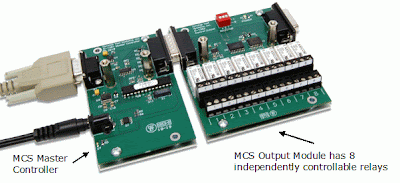When operators are involved in the wire harness testing process, things can go wrong. NX Wire Harness Testers from Dynalab Test Systems offer several approaches for gaining control of the testing process to minimize defects and maintain satisfied customers.
One of the challenges in testing wire harnesses is maintaining control of the testing process. Typically, the testing process is not fully automated. Operators connect an untested wire harness to the test fixture, and remove a tested wire harness from the test fixture. After a wire harness has been tested, it must be categorized as having passed or failed, and the operator must appropriately segregate the failed harnesses from the good ones. At times, an operator may fail to properly segregate a failed wire harness, causing major problems downstream. Another potential problem occurs when an operator fails to wait until the test is completed and removes a partially tested wire harness from the test fixture. Wire harness manufacturers who use NX Wire Harness Testers from
Dynalab Test Systems have several options available to them to control the testing process to minimize the possibility of intermingling defective wire harnesses with good ones. These methods include:
• Activating a fixture clamp when the wire harness has passed all tests
• Printing a label only when the wire harness has passed all tests
• Sounding an alarm if the operator removes the wire harness before the test is completed
The following is a brief explanation of each approach.
Activating a fixture clamp:
Many high-volume manufacturers use fixture clamps to prevent the operator from removing the wire harness before the NX Wire Harness Tester has verified that all tests have passed. In this scenario, a defective wire harness can only be removed from the fixture through intervention of a supervisor or other authorized personnel. This results in improved quality control. A fixture clamp is a device that provides a means of locking a wire harness connector in place while the wire harness is being tested. Most fixture clamp designs use a mechanical locking device that engages when a connector is inserted into a holder. When all tests have passed, an electric solenoid is used to release the connector at the end of the test. It is best to use fixture clamps that are closed and held by a mechanical latch and are opened by activation of an electrical solenoid. This ensures that the clamp will remain closed even if the power is disconnected. The NX Wire Harness Tester may be equipped with the optional Control Port Module. This enables the NX Tester to apply power to the fixture clamp solenoid when the wire harness has passed all tests. Here is a description of the operational scenario involving the use of a fixture clamp with the NX Tester and NX Control Port Module:
- When the operator inserts the harness connector into the fixture block, the connector becomes mechanically locked in place.
- When the wire harness passes all tests, the NX Wire Harness Tester causes the Control Port Module to close – this applies power to the solenoid and releases the harness connector.
- After a short time delay, the NX Wire Harness Tester causes the Control Port Module to open, turning off power to the solenoid.
If the wire harness is defective, and cannot be repaired, a supervisor or other authorized person can insert an NX Supervisor Key into the NX Tester’s key slot. This releases the fixture clamp, allowing the defective wire harness to be removed from the fixture.
Printing a Label:
Dynalab NX Wire Harness Testers can be programmed to print labels using the Dynalab Label Printer. This prints a product label when a wire harness passes all tests. This is a superior method to using pre-printed labels. Using the NX Wire Harness Tester to print a label when a wire harness passes all tests ensures that only good products receive labels. This assurance does not exist when using pre-printed labels. Using the NX Wire Harness Tester to print labels also allows for dynamic data to be part of the label information, such as the current date and time, operator ID, and tester ID. When only good wire harnesses get labels, it simplifies the process of segregating good product from bad.
Sounding an Alarm:
The NX Wire Harness Tester may be programmed to enter into an Alarm Mode when a wire harness is removed from the test fixture before the Tester has completed testing Upon entering the Alarm Mode, the NX Wire Harness Tester does the following:
- Stops testing
- Sounds an audible alarm
- Displays a message indicating early removal of the harness
- Requires insertion of the Supervisor Key to de-activate the alarm
Once testing has begun, if the wire harness is removed before testing is completed, the NX Wire Harness Tester can be programmed to enter the alarm mode. The alarm mode will abort the test, sound a continuous alarm, and display a message indicating early removal of the wire harness. This behavior will continue until an authorized person with a Supervisor Key inserts the key into the NX Tester’s key slot. The alarm condition can only be reset through insertion of the Supervisor Key. Cycling the NX Tester’s power will not reset the alarm condition.
Using one or more of these approaches will enable wire harness manufacturers to improve control of the quality of their products. NX Wire Harness Testers from
Dynalab Test Systems can provide these capabilities easily. Complete application support is available from
Dynalab Test Systems , including detailed application notes for each of these approaches.
NX Wire Harness Testers have many more features and capabilities. To learn more, please visit the company’s website
Dynalab Test Systems or call 1-800-SOS-DYNA (USA/Canada Toll Free) or +614-729-6550.



